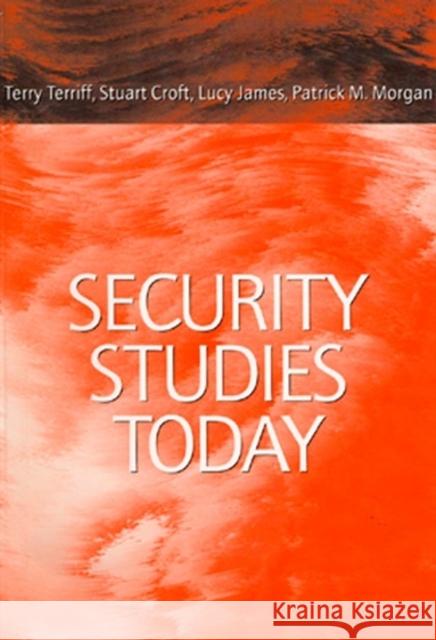Security Studies Today » książka



Security Studies Today
ISBN-13: 9780745617732 / Angielski / Miękka / 2000 / 240 str.
Security Studies Today
ISBN-13: 9780745617732 / Angielski / Miękka / 2000 / 240 str.
(netto: 87,79 VAT: 5%)
Najniższa cena z 30 dni: 91,61
ok. 30 dni roboczych.
Darmowa dostawa!
This is the first book to examine the range of thinking about security that has emerged in the academic literature over the past fifteen years.
′A most rigorous and systematic introduction to the contemporary debates in the field of international security studies. It is eminently readable and accessible for undergraduate and postgraduate students alike.′
Tony McGrew, Southampton University
Security Studies Today offers a rich comprehensive discussion of post–Cold War security agendas: it presents a variety of theoretical traditions form realism to feminism as well as outlining some new security issues. The book us unique in its recognition of a wide spectrum of theoretical approaches from conventional to post–positivist. Going well beyond realism s focus on the security of the state, Security Studies Today is an important text for students seeking to understand the multiple security challenges facing individuals and their environment at the beginning of the twenty–first century. –– Judith Ann Tickner, School of International Relations, University of Southern California
A most rigorous and systemic introduction to the contemporary debates in the field of international security studies. It is eminently readable and accessible for undergraduate and postgraduate students alike. It delivers a balanced and careful analysis of contemporary approaches to security but does so in a manner which conveys a real sense of the on–going renaissance in the academic study of security. –– Anthony McGrew, Professor of International Relations, University of Southampton
Introduction.
1. International Relations and Security Studies.
2. Traditional Views of Security in International Politics.
3. Peace Studies.
4. The Impact of Gender on Security.
5. The Post–Positivist Turn.
6. Non–Traditional Security Threats: The Environment as a Security Issue.
7. Non–Traditional Threats to Security: Economics, Crime and Migration.
8. Conclusion: Security and Security Studies.
Notes.
Index.
Terry Terriff is a Senior Lecturer in International Security in the Department of Political Science and International Studies at the University of Birmingham.
Stuart Croft is Professor of International Relations in the Department of Political Science and International Studies, University of Birmingham.
Lucy James is Lecturer in the Centre for International Politics at the University of Manchester and Patrick Morgan is Professor of Peace and Conflict Studies at the University of California, Irvine.
This is the first book to examine the range of thinking about security that has emerged in the academic literature over the past fifteen years. It begins by examining the centrality of security issues in the discipline of international relations, and then outlines in turn the various perspectives on security – starting with realism and moving on to peace studies, gender, and post–positivist arguments. The book then explores the non–traditional threats that have been brought into the security debate, such as the environment, economics, transnational criminal organizations, and population movements. Throughout this study, the authors focus on two of the central questions in the current debate: What is to be protected and what is to be protected from?
By defining the parameters of the discipline and identifying the paradigms contained within it, this much–needed book provides a foundation for understanding the current debates and thinking in security studies. It will be essential reading on undergraduate and postgraudate courses in security studies and international relations, as well as contributing to the development of the current academic debate on the meaning and nature of security.
1997-2026 DolnySlask.com Agencja Internetowa
KrainaKsiazek.PL - Księgarnia Internetowa









